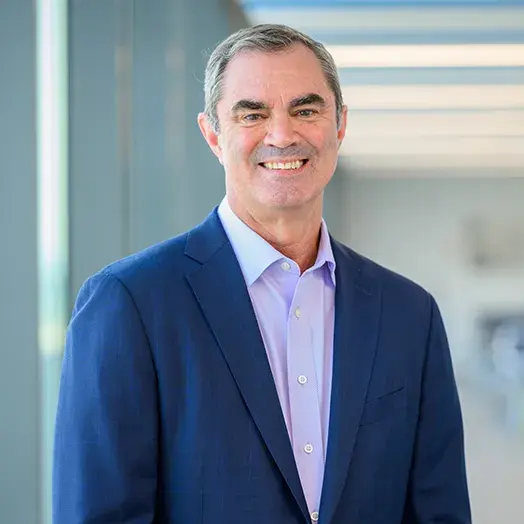
The Future of Work? Flexibility, Says Zoom CIO
“I might just prefer to work from home, but I shouldn't have a different experience than my colleague in the office,” said Gary J. Sorrentino during the third annual Johns Hopkins Carey Business School MBA Summit: ConNextion, held in April 2022. Sorrentino, Global Deputy Chief Information Officer for Zoom Video Communications, explained why his company is developing a hybrid work environment and offered advice to MBA students and companies alike during his talk with Alex Triantis, Dean of Carey Business School.
Two-thirds of Zoom employees were hired remotely during the pandemic and have now started to go into an office. Sorrentino said, “It's becoming a balancing act now; the pendulum was everybody working remotely. The pendulum did not come back to everybody working in the office. Now the pendulum is finding its middle balance, and people are using office space and home space as tools.”
Successful employees, he remarked, will use whichever “tool” gives them an advantage. To help employees do this, companies must evaluate their office space. Today its “how do we make it flexible for the employees, how do we make it cool where they can thrive. And how do we make it so that we are supporting great talent, because great talent will find ways to work in other places that meet their requirements,” said Sorrentino.
Employees want not only flexibility, he noted, but also to be connected. He said many companies are getting rid of conference rooms in favor of “huddle areas” to facilitate collaboration. In addition to Zoom’s many new online tools that support hybrid work, such as digital whiteboards and immersive scenes, Sorrentino described an “air barrier” technology that the company designed to cancel cross talk, thereby permitting multiple huddles in one space.
What to Read Next

career outcomes
Alum catapults from MBA to senior VP at SonySorrentino also described how a “load shift,” i.e., planning different tasks for home and office, is among new skills that employees must learn. For example, one team he knows is always in the office on Wednesdays, to socialize and derive the benefits from problem-solving in person. And managers working in a hybrid work environment, he said, need to manage “not the hours that people work” but “the output and the productivity of people and rearrange it to suit different people’s lifestyles.”
The pandemic, he said, “changed the value of my job…I don't look at myself as an employee of Zoom anymore. I look at myself as a person who gets to work the way he wants, where he wants, how he wants, and he gets to add value back into the world…The opportunities are endless today.” Sorrentino advised Carey Business School students to think along these lines and to look “for a role that is going to give the world value, and it's something that you're proud and happy to do.”


